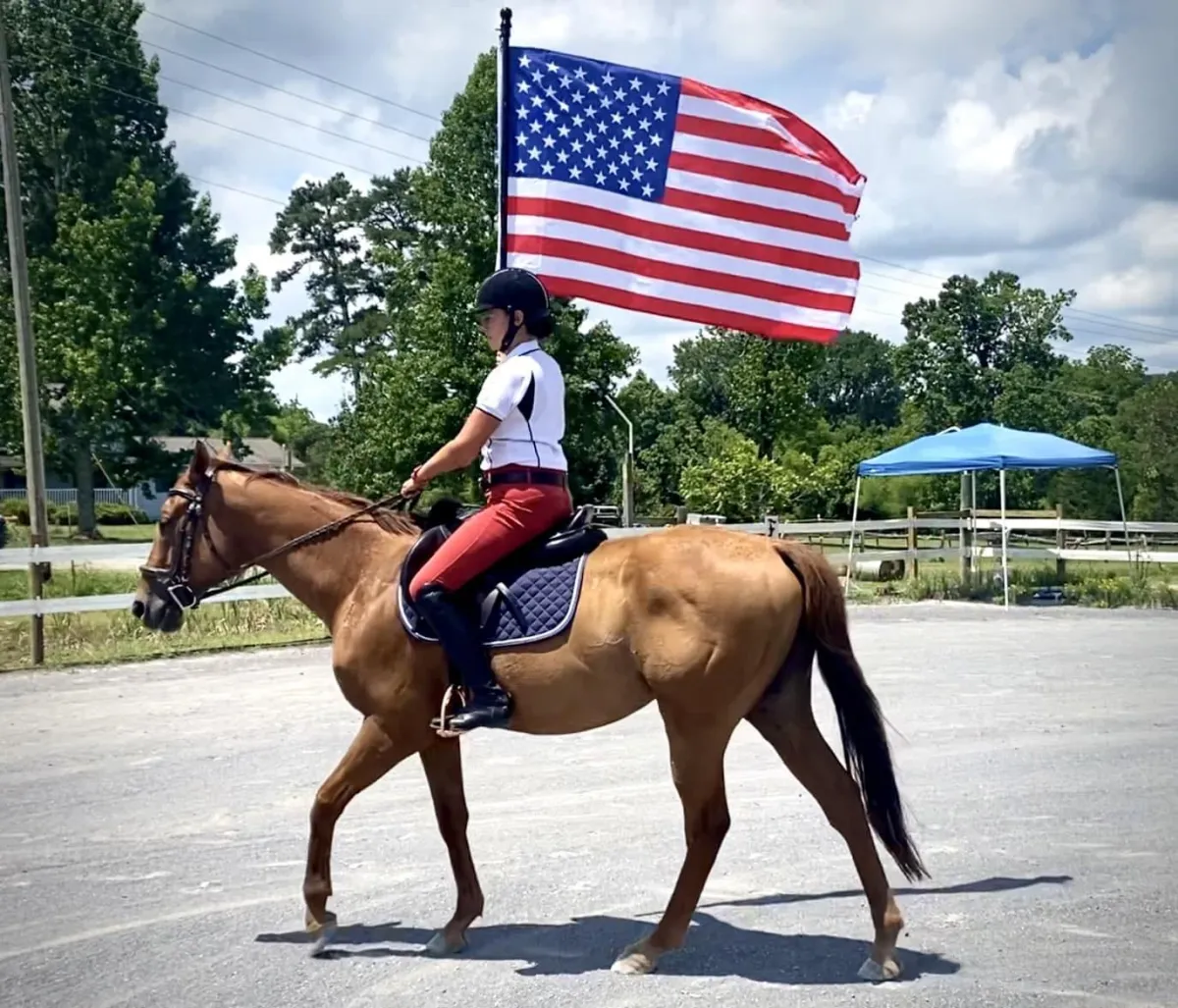
Make sure you keep up with our blog to see what we've been up to, learn training & riding tips & much more!

Empowering Equines: The Art and Importance of Consent-Based Horse Training
What is Consent-Based Horse Training?
I will start off by saying that I know this post will get a lot of hate. I am fully aware that sometimes I am really great at making enemies, but I will always speak up for those who cannot speak for themselves. In this case I am speaking specifically of horses. I have been getting asked a lot of questions lately about my training methods, specifically when I speak about consent-based training. Some people ask about this with genuine interest & curiosity, but some people ask about it because they use this against me to make fun of what I am doing, want to discredit me or my favorite one… they claim that I do this because I am scared of training horses.
To the people who have a genuine interest & curiosity, I hope that I can peak your interest, open your eyes to new methods & ways of thinking about working with horses & that I will be able to teach others my beliefs and methods. To the latter group, your insults and jabs are something that I can see right through. This type of work requires a lot of patience, intelligence and observation. It requires an open-mind & two-way communication between you and the horse. When I see people resort to the verbal jabs against me or the force and aggression used on horses that they work with I know that it is because they have reached the limit of their knowledge & all they know how to do at that point is be a bully & dominate.
I am someone who is always trying to find a better & kinder way to work with horses. I am always changing & evolving. My biggest teachers are the horses themselves. I absolutely love working with sporthorses that I get to fine-tune to move up the levels in the show world, but I have always gravitated more towards the throw-away horses, the rescues, the dangerous horses, misunderstood horses, the aggressive horses. These are horses that most trainers refuse to take or some cowboy will get a hold of them and sack them out. I have ended up with many horses that were going to be euthanized if I had not agreed to take them on. I have worked with so many traumatized horses. They have been the most important teachers I have had.
I learned through many trials & errors that these horses really take a much different approach. I grew up learning all about dominance-based training practices, making a horse “respect” you, moving their feet, using all sorts of gadgets, making them tolerate something before they were ready, desensitizing them… or should I say flooding them…. the list goes on. It’s horrible! I didn’t know any better. It was once I got my own facility where it was quiet that I could really be quiet, slow down and really observe & learn what was going on.
I have Asperger’s, and I did not learn this until late in life. Being someone who has Asperger’s I am extremely sensitive to everything & I am able to pick up on things that most people can’t. It’s like a 6th sense. It’s very much an empathic & energetic quality. I also found out that I come from a very long line of Spanish & Mexican vaquero trainers. Once I was able to really slow down, ground myself & really pay attention to the horse I was able to learn so much.
I made the horse the center of everything I did. I let the horse dictate what we would do and I would let them set the pace. I didn’t just jump right into this. This has taken many years of working with horses to develop into what I am working with now. I feel like just now I have a bit more of a system & have been able to make some pretty big changes with what I do.
When I say I am using consent-based methods a lot of people laugh about it. Some people have called me a snowflake & started bringing up the “Me Too” movement. I feel bad for these small-minded people. I am constantly growing & changing. I think it’s wonderful that people are more open to making sure that everyone & every creature has a voice. Consent-based training is a more empathetic and collaborative approach that considers the horse's feelings and preferences.
Consent-based horse training is rooted in the idea that horses, like any other sentient beings, deserve to be treated with respect and dignity. It involves building a relationship based on trust and clear communication…not fear, force & dominance. Consent-based training encourages the horse to actively participate in the learning process & gives them the power to control the session. I have outlined a few key points about consent-based training techniques.
1. Communication is Key:
Establishing effective communication is fundamental in consent-based horse training. This involves understanding and interpreting the horse's body language, vocalizations, and subtle cues. This requires you to be observant and responsive, creating an environment where the horse feels comfortable expressing itself. We don’t want to create a dull & unresponsive horse. We want a horse that reacts to the environment.
2. Positive Reinforcement:
Instead of using punishment as a means of control, consent-based training relies on positive reinforcement. Rewarding desired behaviors encourages the horse to willingly cooperate. This can include treats, praise, or simply giving the horse a break as a form of acknowledgment. We use this to shape the behavior that we want to encourage & we simply ignore the unwanted behavior.
3. Choice and Freedom:
Consent-based training respects the horse's autonomy by offering choices. Allowing the horse to make decisions within a controlled environment empowers them and fosters a sense of autonomy. I have noticed that since I started allowing horses to make their own choices that not only are they happier and more willing partners, but we are able to progress through training much quicker. Everything we do is made to be the horse’s idea.
4. Understanding Individuality:
Recognizing that each horse is unique is crucial. What works for one may not work for another. You have to have a lot of tools in your toolbox & be able to adapt your methods to suit the personality, history, and preferences of each horse. This personalized approach builds a stronger bond between the trainer and the horse.
By prioritizing consent and understanding from your horse you will be able to cultivate a trusting relationship with your horse. This bond is essential for effective communication and a positive learning experience. You will notice that consent-based techniques minimize the stress and anxiety that your horse feels. When a horse feels heard and respected, they are more likely to be relaxed and engaged during training sessions. Horses trained with consent are more likely to willingly participate in activities, leading to improved performance. This approach results in a willing and enthusiastic partner who will come up to you in the field & also enjoys their work.
I hope that consent-based training is something that you are open to learning more about. We need to always make sure that we do right by our horses & always have their best interest at the heart of everything that we do. Once you start to learn & practice these techniques you will notice a huge shift in your horse.
If you are interested in learning more about force- free & consent-based training methods, please contact me at (423)596-8286 or amy@starssporthorses.com
